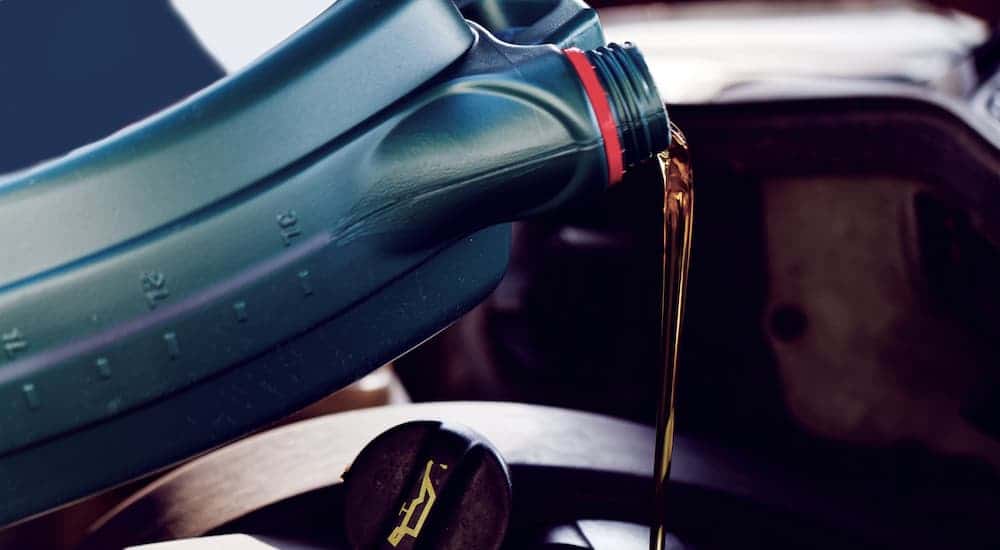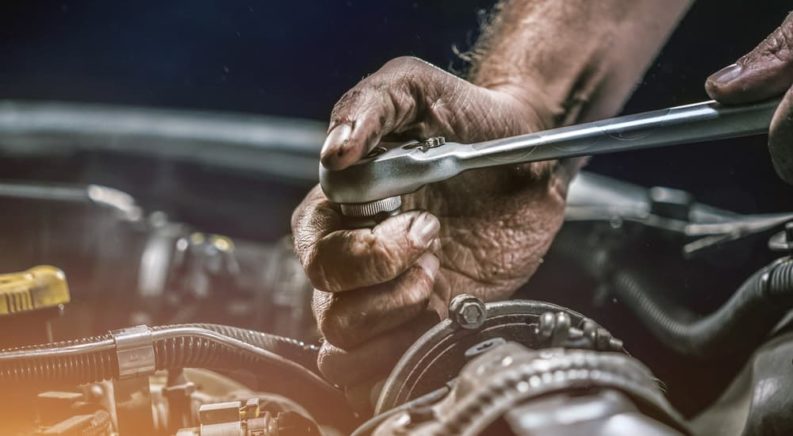Let’s just get this out of the way: yes I know what that title sounds like, no that’s not what this article is going to be about, yes it will be safe for work. Now that that’s out of the way, let’s take some time to talk about lube jobs and oil changes, and other sorts of vehicle maintenance you’ve probably heard about. From a quick lube job to a full-service comprehensive inspection, there are important differences here that you need to understand.
One thing to know right off the bat: these terms are used a lot in advertising, especially for garages and national chains, and sometimes they are used interchangeably. You might see “quick lube” advertised, but really it’s just a quick oil change. Or you might see the term “full-service oil change,” but they’re talking about much more than just the oil in your engine. So even once you understand what all these things are—when you go into a shop or back to your dealership for service, ask what they are specifically doing so you’ll know for sure.
Now then, let’s look at these terms and what they all mean…
For Starters
The first thing to know (which you already might know and if so, that’s great!) is that your vehicle has a lot of moving parts. For the most part, we’re talking about traditional gas-powered vehicles here with internal combustion engines, not electric cars. The engine itself has a whole lot of parts that move and rub against each other, as do other parts of your vehicle’s chassis—particularly parts near the tires and everything involved with steering and controlling your car.
All of these moving parts create friction, and if they were left to their own devices, this friction would cause damage to them. Oil in your engine keeps the different moving parts, like pistons and shafts, from overheating and basically destroying each other during routine operation. Similarly, lubricant in different locations throughout the chassis of your vehicles keeps everything else moving easily so you have a smooth ride and parts don’t wear down too quickly.
Quick Lube
In general, a quick lube or lube job refers to maintenance on your vehicle in which the lubricants used on the chassis are inspected and replaced as needed. Over time, lubricant wears out and is no longer as effective as it is at first. This can result in a less pleasant ride—and if left without maintenance long enough, then damage can occur to the steering components and cause serious problems.
Quick lube jobs typically require lifting your vehicle up and inspecting specific locations to make sure they are still properly lubricated. Additional lubricant is added as needed to make sure everything is working well. Not only is this important to keep things lubricated, but it is also a great way for a mechanic to notice damage or other issues with your vehicle’s brakes, steering, and similar systems on the chassis.
Oil Change

An oil change refers to replacing the oil in the engine of your vehicle. This is something a mechanic can do quite quickly and easily, and many people actually change their oil themselves at home. Sometimes, just to be confusing, businesses will use the term “quick lube” when they are really talking about an oil change. Or they’ll use both terms together—and sometimes a quick lube job will include both the lubricant throughout chassis components and the oil in the engine.
Again, this is why you should ask what, exactly, they are going to do. Depending on your vehicle, these might need to be done at different times. So if you just had a quick lube job on the chassis, make sure you keep track of when you need to change the oil in your engine.
Full-Service Lube/Oil Change
In general, the term “full-service” usually refers to an oil change or quick lube job that includes both elements. Sometimes it can also include inspections of other areas on the vehicle or just refer to a more comprehensive oil change. Just keep in mind that the term “full-service” can mean pretty much whatever the garage or dealership wants it to.
So ask the mechanic or other person you are dealing with what all is included in the “full-service” package. You might be able to just get a quick lube job for less money and get most of the same work done. Or a full-service change could include things you don’t need – if you just had your oil changed and only need a quick lube job, then don’t bother with a full-service option that includes both.
Other Services
For the most part, mechanics and automotive professionals will get your vehicle up on a lift in order to perform an oil change or quick lube job. This makes it easier for them to access the engine and drain its oil, or get into the parts of the chassis with lubrication. While they have the vehicle up there, they can perform some other simple services to make sure your vehicle runs smoothly.
Ask about having your alignment looked at and adjusted if needed while you get an oil change or quick lube job. You can also ask them to look at your tires—or inspect them yourself—to see if they need to be rotated or replaced. Since they are already checking your steering and brakes during a quick lube job, you can ask them to inspect the discs on your brakes to see if they are getting worn down and need to be replaced soon.
Sure, these things can cost more, but a lot of mechanics will check these things and even do minor services like adjusting your alignment free of charge while performing a quick lube or oil change. And if they do find a major issue, like brake pads that are extremely worn or a tire that is about to come apart, then you can save yourself from future headaches and dangerous situations. It’s always better to find something before it becomes an issue and address it, rather than wait for a problem to present itself when you’re doing 60 on the freeway.
So, What’s it all About?
The point of all this information is for you to have knowledge. The more you know, the better prepared you are to make sure your vehicle is serviced properly and take care of your ride, just like it takes care of you. Take a look at the owner’s manual for your vehicle— no, you don’t have to read the whole thing—you’ll find information about how often you should get your oil changed or go in for a quick lube.
Plus, with this knowledge, you’ll also be able to tell when an unscrupulous mechanic is trying to take advantage of you. If they advertise a quick lube job but they’re really offering an oil change, then you can avoid service that you don’t need and stick to the stuff that you do want. Fortunately, most garages and dealerships are honest about providing proper service for your vehicle, but you’re better off knowing what you’re doing.
Now go get a quick lube or oil change, secure in the knowledge that you know what it all means and what you really need.

